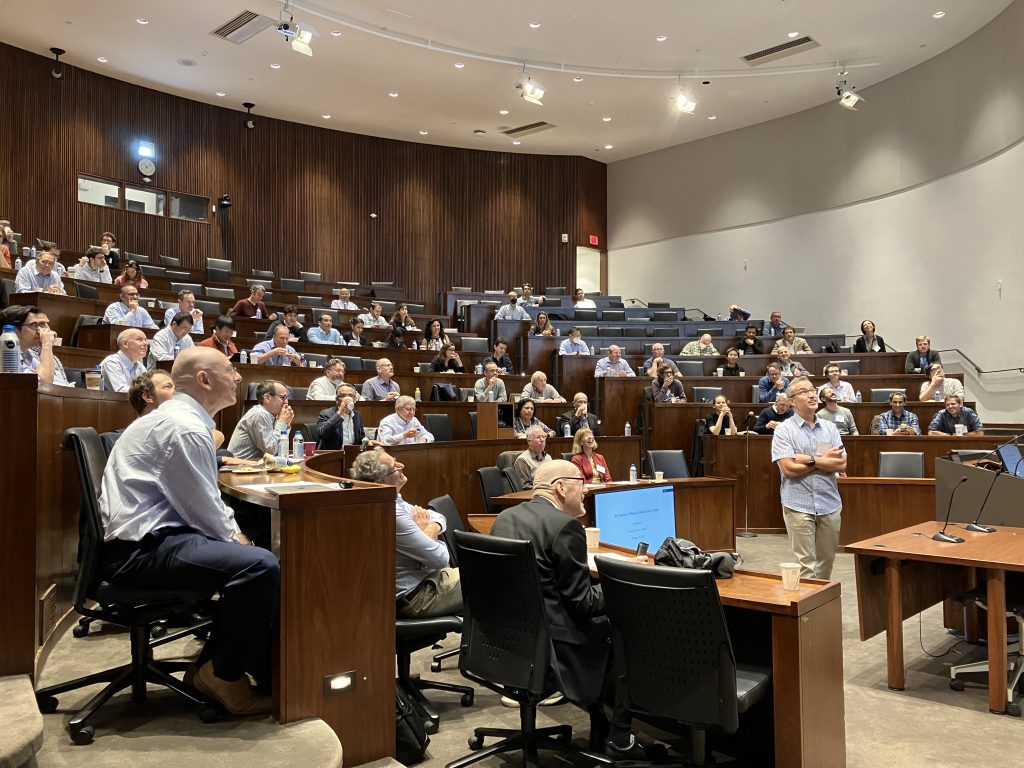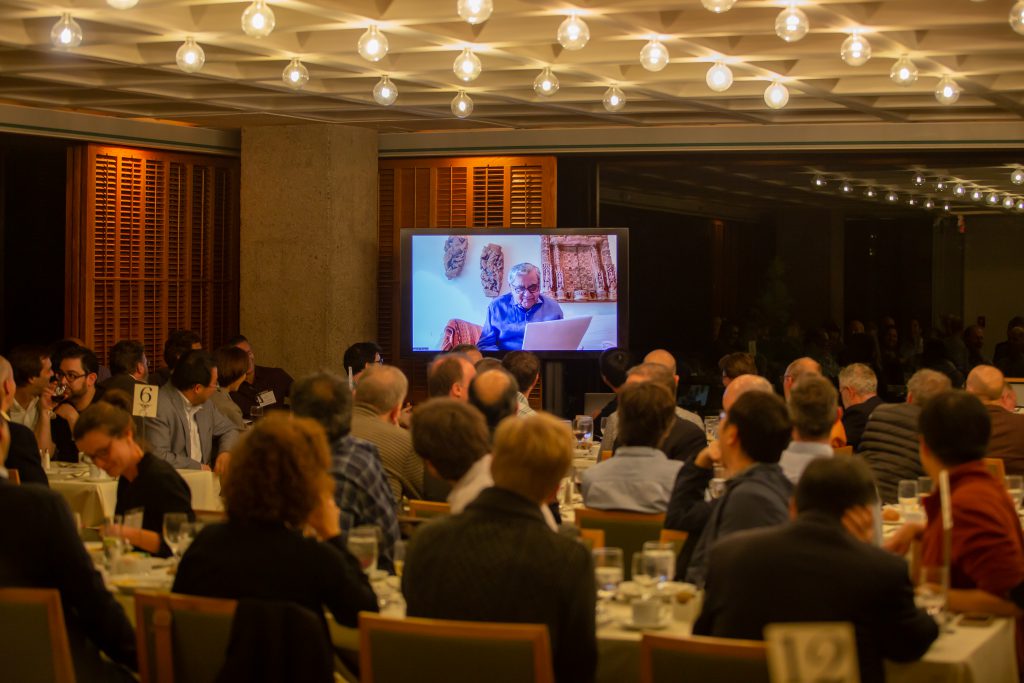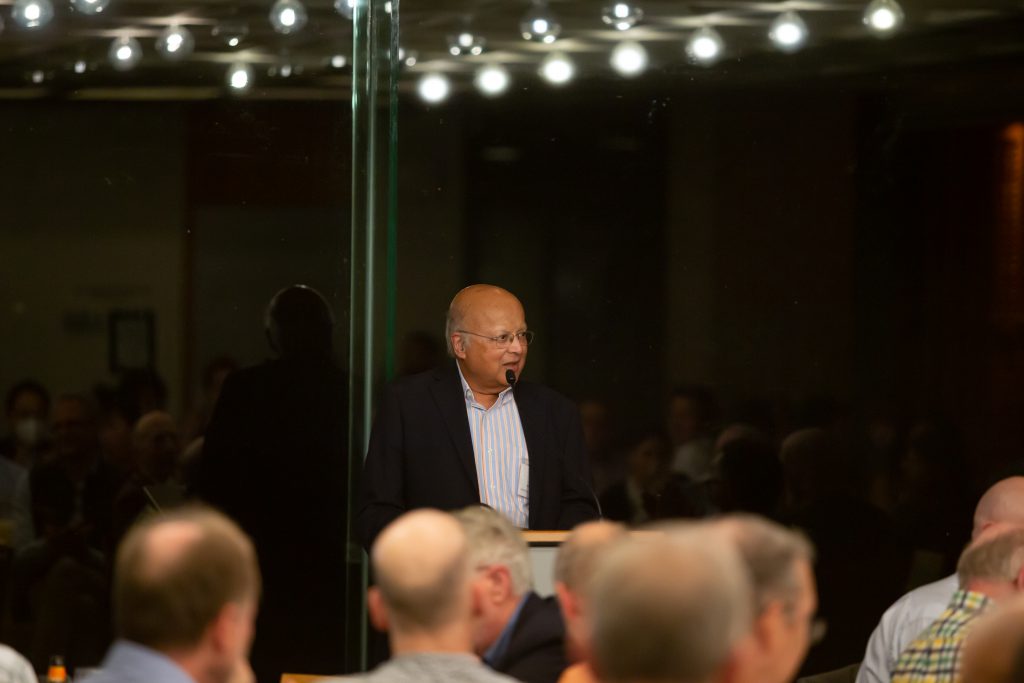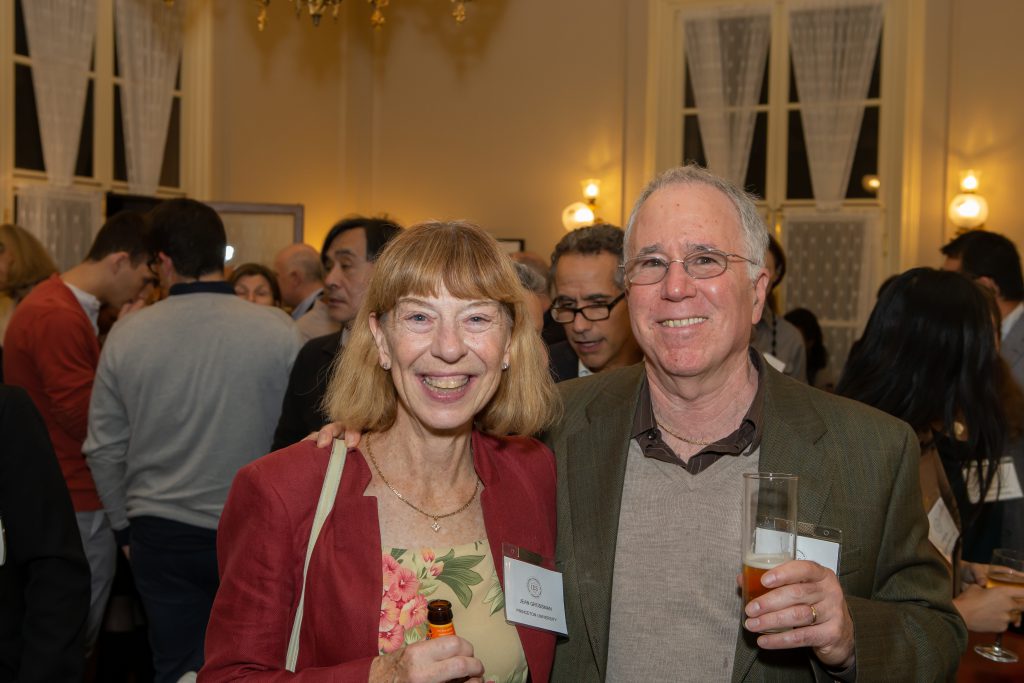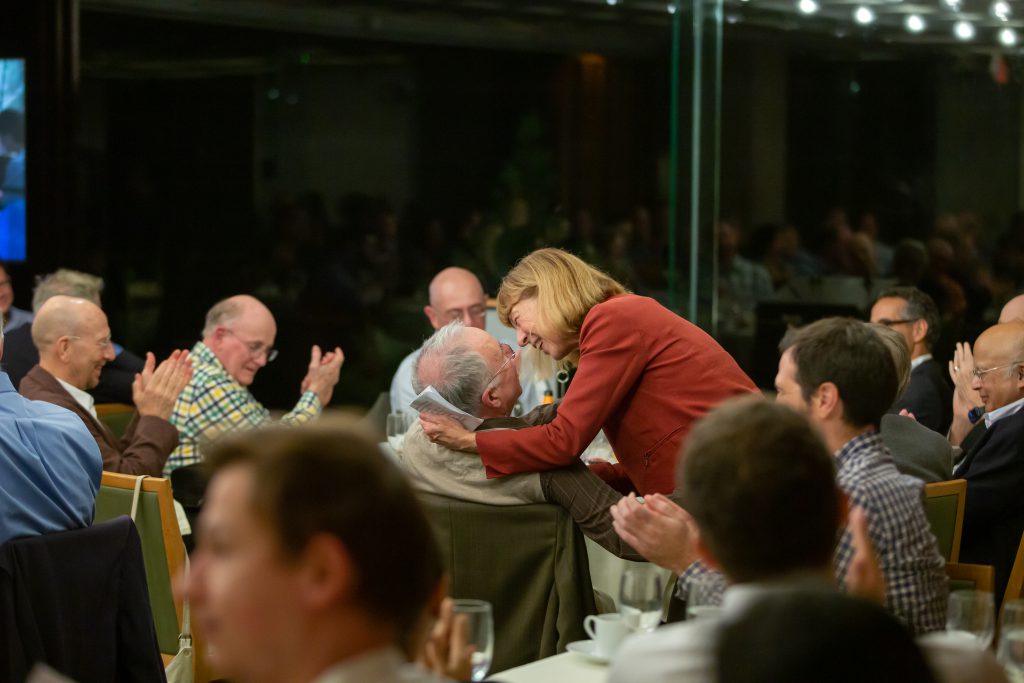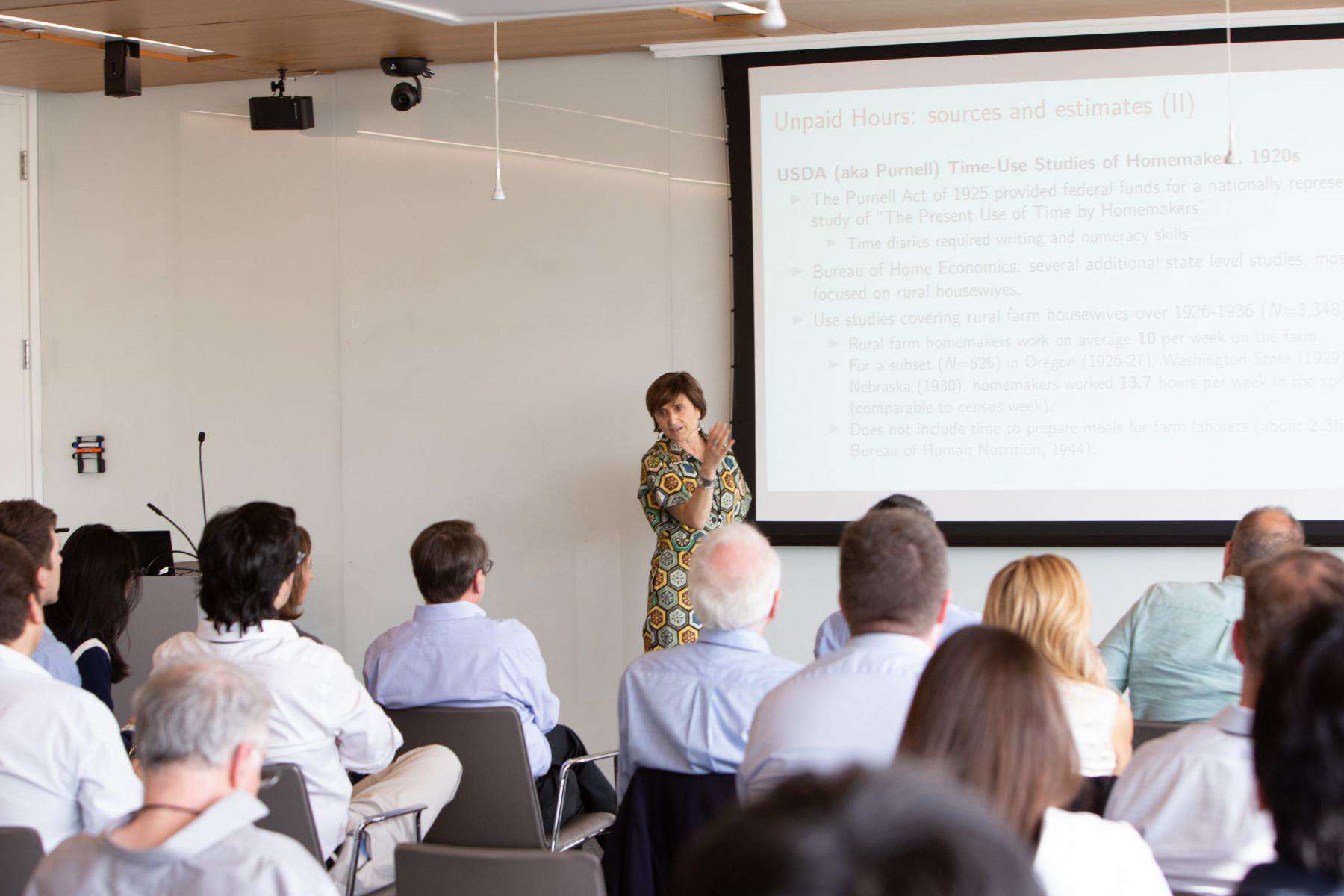A Joyous Gathering to Celebrate Gene Grossman’s Many Contributions to International Economics
Last month, Princeton University’s campus was a scene of joy and camaraderie as around one hundred friends and colleagues came together to celebrate the accomplishments and mentorship of Princeton Professor Gene Grossman.
Grossman, the Jacob Viner Professor of International Economics and longtime director of Princeton’s International Economics Section, is known to many as a giant in the field of international trade. This October–after a multi-year delay due to the Covid-19 pandemic–friends, colleagues, and admirers were finally able to come together for a celebration pegged to Grossman’s 65th birthday.
A Day of International Trade Research
Much of the day was spent doing what Grossman does best–dissecting the latest research in international economics. The academic conference portion of the event featured four sessions on issues in international trade, growth, labor markets, inequality, and political economy.
Academics and researchers from universities around the world attended to share new and original research. Highlighting Grossman’s influence among those in the room and the field at-large, Harvard Professor of Economics Pol Antràs began his own talk with a presentation of a detailed network map of Grossman’s role as a mentor in the field.
In the middle of the day, participants attended a special lunchtime panel on the future of globalization featuring New York Times columnist and Princeton Professor, Emeritus Paul Krugman, Yale Professor of Economics and Management Jim Levinsohn, and Penn State Professor of Economics Kala Krishna.
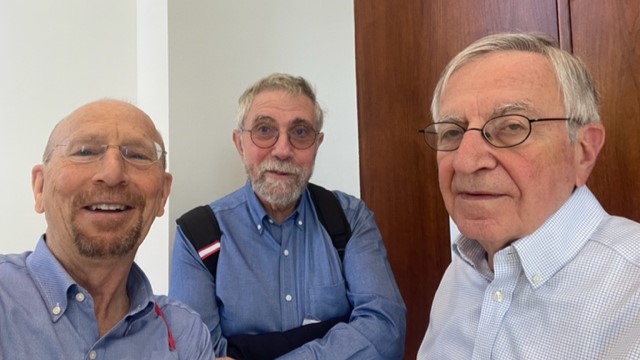
Richard Baldwin (Graduate Institute of Geneva), Paul Krugman (CUNY and Princeton, Emeritus), and Elhanan Helpman (Harvard) converse at the conference.
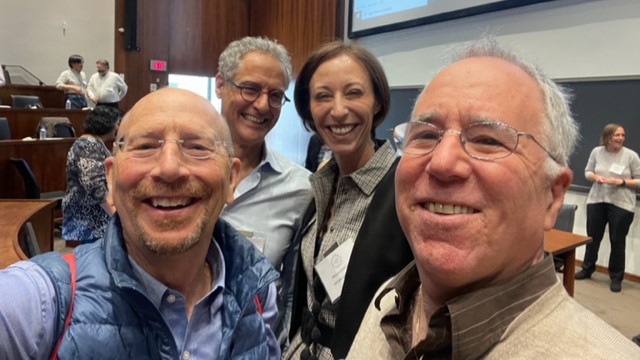
Richard Baldwin (Graduate Institute of Geneva), Dan Trefler (University of Toronto), and Paola Conconi (Oxford) take a picture with Grossman at the conference.
A Celebratory Dinner
Following the conference, guests gathered at Prospect House for dinner, where many took the stage to speak about Grossman’s impact on both the field and their own lives and careers.
In a pre-recorded video statement, Grossman’s graduate advisor at MIT, Columbia University Professor of Economics and Law Jagdish N. Bhagwati, said Grossman is “indisputably among the most eminent of the many successful students that I’ve had the privilege of teaching at MIT and Columbia over nearly half a century. And your success manifests from the fact that Princeton has chosen you to inherit the mantle of the great international trade economist Jacob Viner.”
Next, Princeton Professor, Emeritus Avinash Dixit remembered when he first met Grossman and his wife Jean, both of whom were enrolled in Dixit’s graduate class on growth theory at MIT.
“They were already a couple. Rudi Dornbusch always told the story of how they held hands in class, but still both could take notes, one being left-handed and the other right-handed.”
Dixit and Grossman met again in 1981 when Dixit joined Princeton’s faculty. “Since then, it’s been a continuous and great pleasure for me to watch Gene’s progress in research and as an economist.”
Elhanan Helpman, Professor of International Trade at Harvard and Grossman’s longtime collaborator, remembered the dozens of cities around the world where he and Grossman had worked together over the years.
“Gene greatly enriched my life, I have to confess,” said Helpman. “As you know in our occupation, in which one often gets immersed in work, forgetting other sides of life–it happens a lot–it helps to have a co-author with whom one both enjoys the working hours and the after-work hours. And for me, the combination of work and fun with Gene has been very gratifying.”
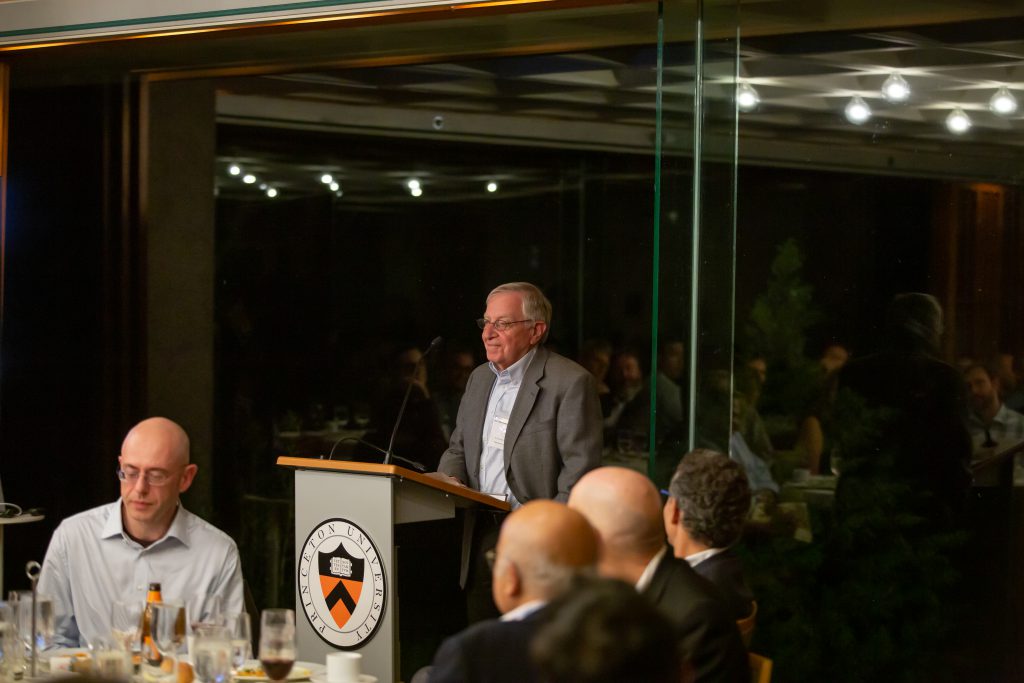
Grossman’s longtime research collaborator, Elhanan Helpman (Harvard), speaks about his partnership with Grossman.
In their nearly four decades of academic partnership, Grossman and Helpman helped build the foundation for our understanding of an increasingly globalized world. In 1994, Grossman and Helpman wrote “Protection for Sale”—a seminal article that looked across economics and politics to show how special interest groups influence trade policy, often lobbying for tariffs to redistribute income in their favor. In their 2001 book, “Special Interest Politics,” they extended their analysis of the origins of trade wars to include the study of how voting behaviors and legislative bargaining affect trade policy.
Following Helpman’s remarks, Eduardo Morales, Professor of Economics and Public Affairs at Princeton, spoke about the privilege of working alongside Grossman as his senior colleague.
“Above all, Gene is a generous team player. When you come here to Princeton, it’s hard to imagine finding many people in the profession who care as deeply as Gene does about transforming a group of economists that have similar research interests into a community…this is something Gene tries to do constantly. If you’ve ever visited Princeton, you will have experienced that Gene wants you to feel part of a whole, welcome and with the support of the team.”
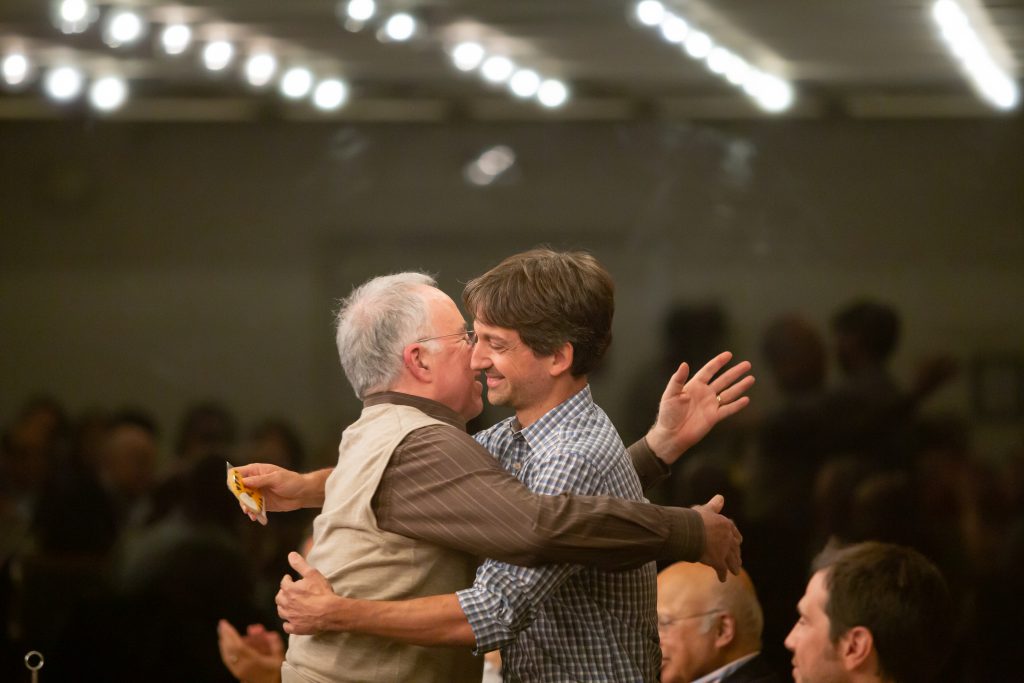
Grossman hugs Princeton Professor Eduardo Morales following Morales’ comments about Grossman’s influence at Princeton.
Participants also heard from Bob Staiger, Professor of Economics at Dartmouth, who spoke about the pleasure of working with Grossman as a co-author.
“Gene, it’s really been a true honor to be in the same field as you, to have been both your professional colleague and your co-author, and to count both you and Jean as my friends. Congrats on a stellar career that I expect is a long way from over.”
To close out the session on prepared remarks before many others rose to speak at an open microphone, Grossman’s wife, Jean Grossman—a faculty member of Princeton’s School for Public and International Affairs (SPIA) and a Senior Research Fellow at MDRC—spoke about the impetus for the event and expressed gratitude for the those who made the journey to Princeton to celebrate.
“I want to thank everybody for making room in your lives to come to this…and you kept it a secret the whole time!”
To close out the event, Grossman himself spoke, beginning with an expression of gratitude for his most influential mentors and collaborators, Jagdish N. Bhagwati, Avinash Dixit, and Elhanan Helpman.
“Elhanan is a scholar’s scholar, and he taught me how to be a scholar,” Grossman said, with emotion in his voice. “He taught me that being an academic and being proud of being an academic is great and fine. You don’t have to want to do something else.”
Grossman noted that Helpman turned down the opportunity, on several occasions, to be governor of the Central Bank of Israel and the Chief Economist of the IMF.
“And why?” Grossman said. “Because he loved doing research. He loved being an academic. That’s all I ever wanted to do, and I learned that from him.”
Grossman also paid tribute to former Oxford Professor Peter Neary, who he cited as a role model, and T.N. Srinivasan, whose Ph.D. trade course at MIT served as a catalyst for Grossman’s career in the field. He thanked both University of Chicago Professor Esteban Rossi-Hansberg, who recently moved to the Windy City from Princeton, and Princeton Professor of Economics Stephen Redding for their support as colleagues.
Finally, Grossman thanked his wife and his “two wonderful daughters” for their support, as well as his parents for instilling in him “curiosity, and the love of learning that keeps me going.”
“The pandemic taught us the importance of interactions and colleagues, and that academics is about being together and talking,” he said. “It doesn’t work on Zoom. Being back together again has been amazing.”
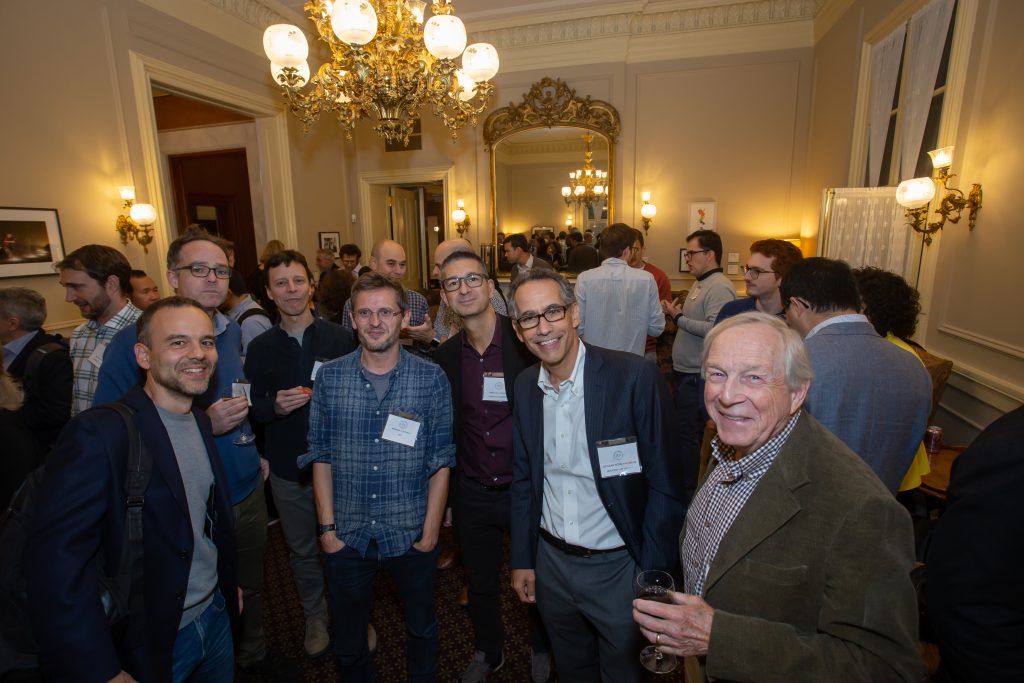
From Left to Right: Luigi Pascali (BSE), Dave Donaldson (MIT), Andres Rodriguez-Clare (Berkeley_, Arnaud Costinot (MIT), Gianluca Violante (Princeton), Esteban Rossi-Hansberg (Princeton), Jim Anderson (Boston College).
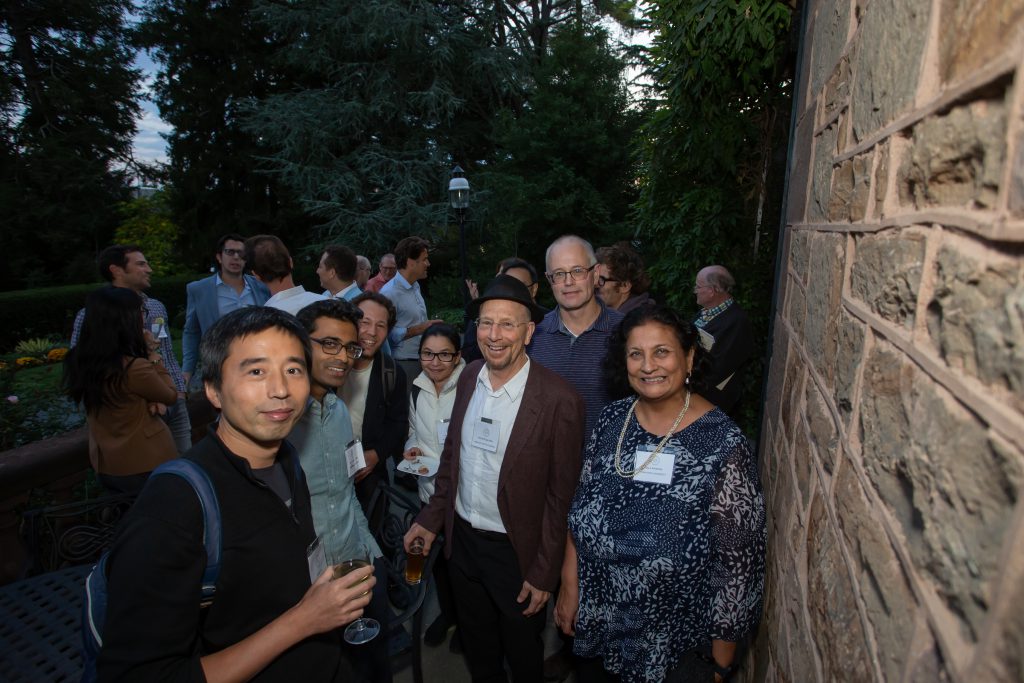
From left to right: Daniel Xu (Duke), Amit Khandelwal (Yale), Oleg Itskhoki (UCLA), Mayara Felix (Princeton Postdoc), Richard Baldwin (Geneva Graduate Institute), Stephen Yeaple (Penn State), and Kala Krishna (Penn State).
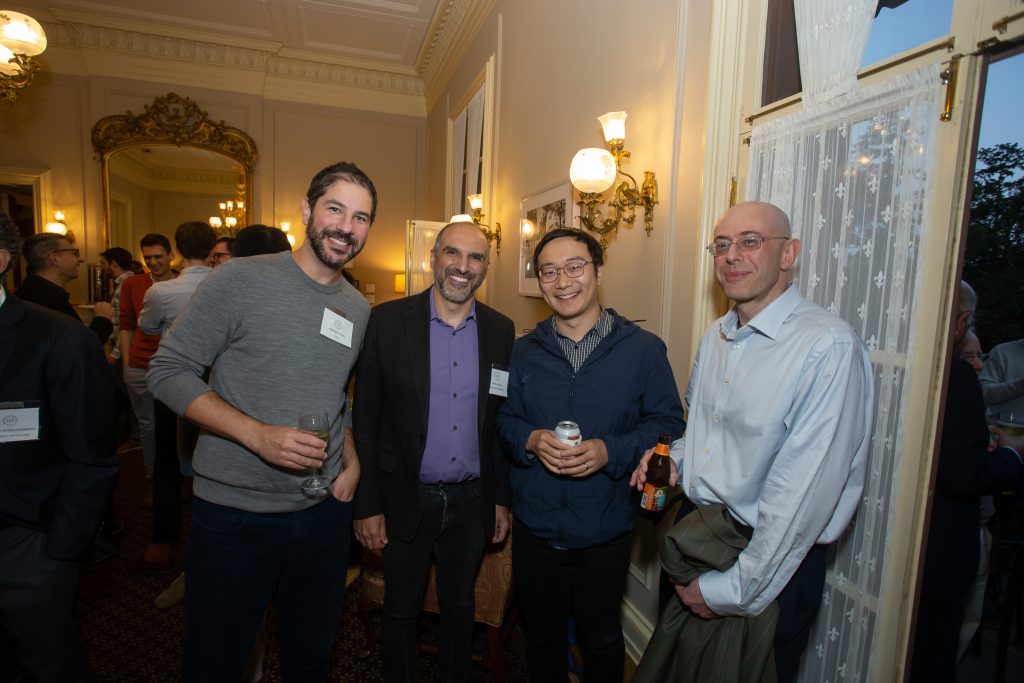
From left to right: Jon Vogel (UCLA), Mark Aguiar (Princeton), and Ernest Liu (Princeton), and Steve Redding (Princeton).
Video Remarks
Watch a recording of the evening’s tributes and remarks on YouTube.
https://youtu.be/cUYKTplnhYA
More Photos
See more photos from the celebration in the slideshow below.
Claudia Olivetti (Dartmouth College) presents during a research seminar.
